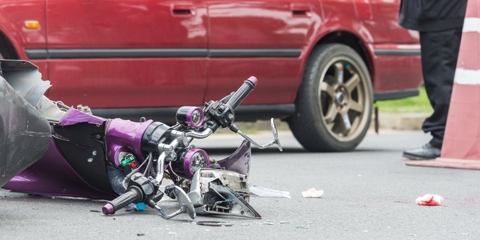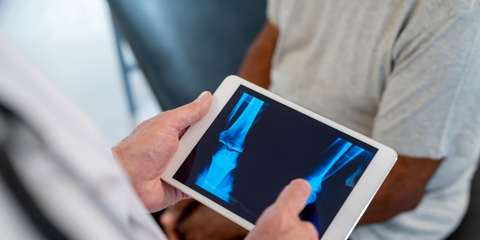Train accidents are rare but devastating when they happen. The aftermath can be overwhelming, especially for victims and their families. Whether you're dealing with physical injuries, emotional trauma, or mounting medical bills, understanding what caused the accident is an important first step. For many, pursuing legal action is necessary to achieve justice and compensation.
Florida, known for its major railroads and public transit systems, has seen its share of train accidents. While every case is unique, certain factors are more commonly linked to these incidents.
What Causes Train Accidents in Florida?
Train accidents happen for a variety of reasons. Some stem from human error, while others are the result of infrastructure issues or mechanical failures. Let's take a closer look at the most common causes:
1. Human Error
Human error is one of the leading contributors to train accidents. This can include mistakes by train operators, conductors, maintenance workers, or passengers. Examples of human error include:
- Distracted Operation: A train operator who uses their phone or fails to pay attention to signals can easily miss critical warnings.
- Speeding: Trains must follow strict speed limits based on the tracks and surrounding areas. Ignoring these limits can lead to derailments.
- Failure to Conduct Inspections: Routine safety checks ensure everything runs smoothly. Skipping or rushing these inspections increases the risk of an accident.
Legal Implications: If human error caused the accident, liability could fall on the train company, an individual employee, or both. Determining negligence requires a detailed investigation into the incident.
2. Mechanical Failures
Modern trains rely on complex machinery to operate safely. When those components malfunction, the results can be catastrophic. Some common mechanical issues include:
- Brake Failures: If a train’s braking system doesn’t function as intended, operators lose control, especially at high speeds.
- Signal Malfunctions: Train signals prevent collisions by directing trains and alerting operators. A signal failure can misguide a train, resulting in collisions or derailments.
- Faulty Tracks: Cracks, shifts, or other flaws in the rail tracks can cause trains to derail.
Legal Implications: When mechanical issues are at fault, manufacturers, maintenance companies, or even the train's operating company may be held accountable.
3. Poor Track and Infrastructure Maintenance
Florida’s growing population and reliance on public transportation put a strain on train infrastructure. Tr trains become more vulnerable to accidents if tracks, signals, or bridges are poorly maintained. Common signs of negligence in maintenance include:
- Worn Rails: Tracks must be regularly inspected and replaced as they wear out over time.
- Overgrown Vegetation: Trees or shrubs obstructing signals can confuse train operators and contribute to crashes.
- Improper Crossing Signals: Malfunctioning gates or signals at railroad crossings are particularly dangerous for vehicles and pedestrians.
Legal Implications: Local government agencies or private companies responsible for maintenance could be held liable if their negligence contributed to the incident.
4. Collisions with Vehicles or Pedestrians
Accidents involving trains colliding with vehicles or pedestrians are unfortunately common. At railroad crossings, cars and pedestrians may misunderstand signals or attempt to “beat the train,” resulting in deadly encounters. Other causes include:
- Blocked Crossings: A poorly designed crossing could confuse drivers or leave insufficient reaction time.
- Malfunctioning Warning Systems: Crossings without working lights or gates fail to warn people when a train is approaching.
Legal Implications: Depending on the cause, the driver, the pedestrian, or the entity responsible for maintaining the crossing could be responsible.
5. Weather and Environmental Conditions
Florida’s frequent storms and hurricanes can negatively impact train operations. Heavy rains may cause flooding that weakens track stability, and high winds or flying debris can disrupt signals or obstruct tracks.
Legal Implications: While weather itself is no one’s fault, negligence in preparing for or responding to environmental risks can determine liability.
What Are Your Legal Options After a Train Accident?
After a train accident, victims often face serious injuries, financial challenges, and emotional distress. Understanding your legal options can help you pursue the compensation you need to get back on track. Here are the key steps to consider:
1. Determine Liability
One of the first steps is identifying who is responsible for the accident. Some of the potential parties that may be held accountable include:
- The train operator.
- The train company.
- Maintenance contractors.
- Manufacturers of defective train components.
- Local transportation authorities.
Depending on the circumstances, multiple parties may share liability. For example, if a train derails due to operator error and faulty brakes, the operator and the brake manufacturer could both be held accountable.
2. File a Claim for Compensation
Victims can seek compensation for a range of damages, including:
- Medical expenses.
- Lost wages and future earning potential.
- Pain and suffering.
- Emotional distress.
- Rehabilitation costs.
Documenting your injuries, treatments, and any expenses related to the accident is critical. This evidence will help you build a strong case.
3. Act Within the Statute of Limitations
Florida law sets strict time limits for filing personal injury claims. Typically, you have four years from the accident date to file a personal injury lawsuit. However, timelines may be shorter in cases involving government entities, such as when the accident involves publicly operated trains.
Failing to act within these deadlines could result in losing your right to compensation, so moving quickly is vital.
4. Seek Legal Guidance
Navigating train accident claims can be complex, as they often involve multiple entities and significant legal hurdles. Hiring an experienced personal injury attorney can help ensure your rights are protected. An attorney can:
- Investigate the incident to identify all possible causes and responsible parties.
- Negotiate with companies or insurance providers on your behalf.
- Represent your interests if the case goes to court.
Florida attorneys familiar with train accident cases understand the unique challenges involved and can guide you through the process while you focus on recovery.
Florida Train Crash Attorneys
Our team at Burnetti, P.A., has the experience and resources to handle complex train accident cases in Florida. Contact us today at (888) 444-8508 to get started.



.jpg)